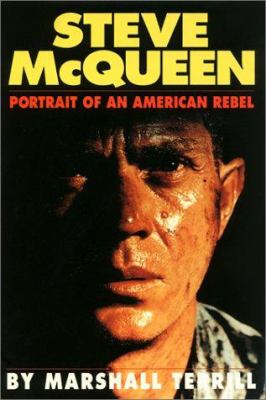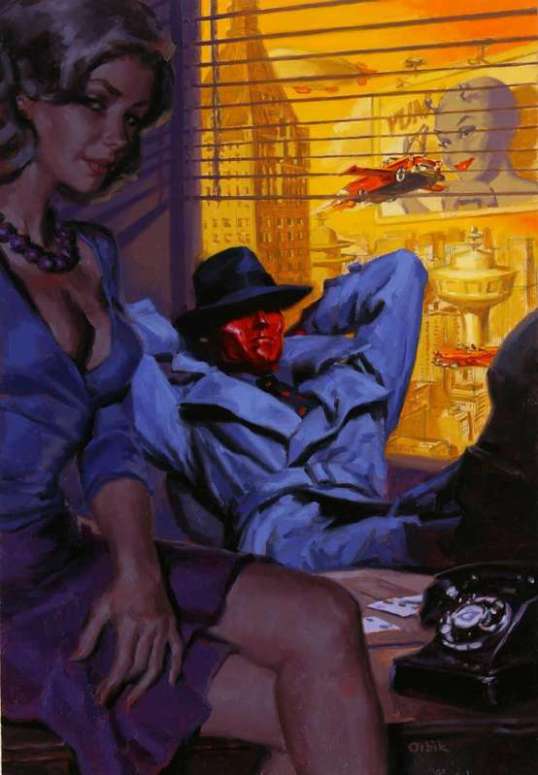
Last night, I watched Tom Horn.
This western was the actor Steve McQueen’s second-to-last movie. He died a few months after it was released in 1980 and McQueen looks frail throughout most of the movie. Despite his obvious ill-health, McQueen still gave a strong performance as a real-life former frontier scout and cowboy who was executed for a crime that he probably did not commit.
After I watched the movie, I searched through my collection of film books until I found my copy of Marshall Terrill’s Steve McQueen: Portrait of an American Rebel. Terrill’s book is one of my favorite actor biographies. It covers all the details of McQueen’s underrated acting career and his turbulent personal life, including both the time he ran into the Manson Family and his relationship with Ali MacGraw.
Best of all, the book ends with a detailed list of every film that McQueen turned down over the course of his career. After he appeared in The Towering Inferno, McQueen became very selective when it came to picking his film roles. He was tired of just doing action movies and he also didn’t want to spend too much time apart from MacGraw. Directors still wanted to work with McQueen but McQueen didn’t always want to work with him and, as a result, the movies that McQueen turned down make for a truly impressive list.
Here’s just a few of the films that McQueen was offered but turned down:
- Breakfast at Tiffany’s (The George Peppard role would have been a rare intellectual role for McQueen)
- Butch Cassidy and the Sundance Kid (McQueen was the first choice for the Sundance Kid but he and Paul Newman could not agree on who would be billed first. This same issue nearly kept them from working together in The Towering Inferno.)
- The French Connection (The French Connection was greenlit due to the success of Bullitt so it’s not a surprise that McQueen was offered the role of Popeye Doyle. McQueen, however, was tired of playing cops.)
- Dirty Harry (Again, McQueen was tired of playing cops.)
- The Great Gatsby (This film was originally envisioned as starring McQueen as Gatsby and Ali MacGraw as Daisy, both of whom would have been better cast in the roles than either Robert Redford or Mia Farrow. As a former juvenile delinquent who became one of the richest men in Hollywood, McQueen was Jay Gatsby.)
- Jaws (Spielberg considered McQueen for the role of Brody.)
- The Driver (Ryan O’Neal was cast instead and gave a performance that was clearly influenced by McQueen’s style of cool)
- A Bridge Too Far (Everyone who was anyone was offered a role in A Bridge Too Far. McQueen was one of the few actors to turn it down and, as happened so often in his career, the role instead went to Robert Redford.)
- The Gauntlet (This was originally envisioned as starring McQueen and Barbra Streisand. It was eventually made with Clint Eastwood and Sondra Locke.)
- Close Encounters of The Third Kind (McQueen turned down the role of Roy Neary because he didn’t feel that he could convincingly cry on screen.)
- Sorcerer (William Friedkin later said that the biggest mistake of his career wasn’t fighting harder to get McQueen to star in his remake of The Wages of Fear.)
- First Blood (McQueen was one of many stars considered for either Rambo or Sheriff Teasle before Sylvester Stallone came aboard.)
- The Bodyguard (Famously, this was written for McQueen and Diana Ross. It was eventually made with Kevin Costner and Whitney Houston)
- The Cannonball Run (After McQueen turned down the project, the script was rewritten to play up comedy over action and Burt Reynolds was cast in the lead role.)
- For me, the most intriguing project that McQueen turned down was Apocalypse Now. McQueen was Francis Ford Coppola’s first choice for Capt. Willard but McQueen turned him down because he didn’t want to leave Ali MacGraw alone for the months that would be required to make the film. Even after being turned down the first time, Coppola offered the role to McQueen twice more, once after firing Harvey Keitel and once after Martin Sheen’s heart attack. When McQueen again refused to play Willard, Coppola tried to interest McQueen in playing Col. Kurtz. While I think McQueen would have been a good Willard, I also believe he would have been a great Kurtz. McQueen would have been more believable as a feared warrior than Marlon Brando.
And that’s just a few of the roles that McQueen turned down! Terrill’s biography includes a comprehensive list.
Even after his death, McQueen has remained an icon of cool. Damian Lewis plays him in Quentin Tarantino’s Once Upon A Time In Hollywood. I’m looking forward to seeing that movie this weekend. I’m also looking forward to rereading Marshall Terrill’s biography of Steve McQueen.
